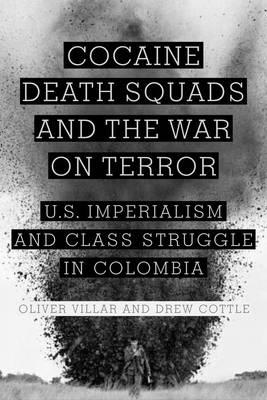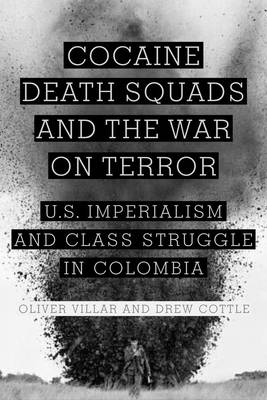
Bedankt voor het vertrouwen het afgelopen jaar! Om jou te bedanken bieden we GRATIS verzending (in België) aan op alles gedurende de hele maand januari.
- Afhalen na 1 uur in een winkel met voorraad
- In januari gratis thuislevering in België
- Ruim aanbod met 7 miljoen producten
Bedankt voor het vertrouwen het afgelopen jaar! Om jou te bedanken bieden we GRATIS verzending (in België) aan op alles gedurende de hele maand januari.
- Afhalen na 1 uur in een winkel met voorraad
- In januari gratis thuislevering in België
- Ruim aanbod met 7 miljoen producten
Zoeken
€ 33,95
+ 67 punten
Uitvoering
Omschrijving
Since the late 1990s, the United States has funneled billions of dollars in aid to Colombia, ostensibly to combat the illicit drug trade and State Department-designated terrorist groups. The result has been a spiral of violence that continues to take lives and destabilize Colombian society. This book asks an obvious question: are the official reasons given for the wars on drugs and terror in Colombia plausible, or are there other, deeper factors at work? Scholars Villar and Cottle suggest that the answers lie in a close examination of the cocaine trade, particularly its class dimensions. Their analysis reveals that this trade has fueled extensive economic growth and led to the development of a "narco-state" under the control of a "narco-bourgeoisie" which is not interested in eradicating cocaine but in gaining a monopoly over its production. The principal target of this effort is the Revolutionary Armed Forces of Colombia (FARC), who challenge that monopoly as well as the very existence of the Colombian state. Meanwhile, U.S. business interests likewise gain from the cocaine trade and seek to maintain a dominant, imperialist relationship with their most important client state in Latin America. Suffering the brutal consequences, as always, are the peasants and workers of Colombia. This revelatory book punctures the official propaganda and shows the class war underpinning the politics of the Colombian cocaine trade.
Specificaties
Betrokkenen
- Auteur(s):
- Uitgeverij:
Inhoud
- Aantal bladzijden:
- 208
- Taal:
- Engels
Eigenschappen
- Productcode (EAN):
- 9781583672518
- Verschijningsdatum:
- 1/11/2011
- Uitvoering:
- Paperback
- Formaat:
- Trade paperback (VS)
- Afmetingen:
- 140 mm x 216 mm
- Gewicht:
- 349 g

Alleen bij Standaard Boekhandel
+ 67 punten op je klantenkaart van Standaard Boekhandel
Beoordelingen
We publiceren alleen reviews die voldoen aan de voorwaarden voor reviews. Bekijk onze voorwaarden voor reviews.









